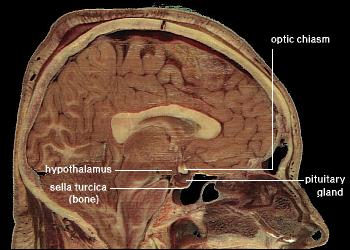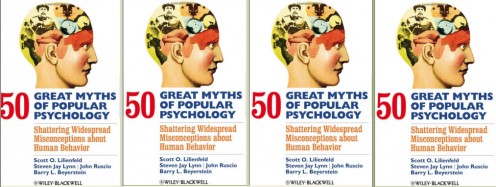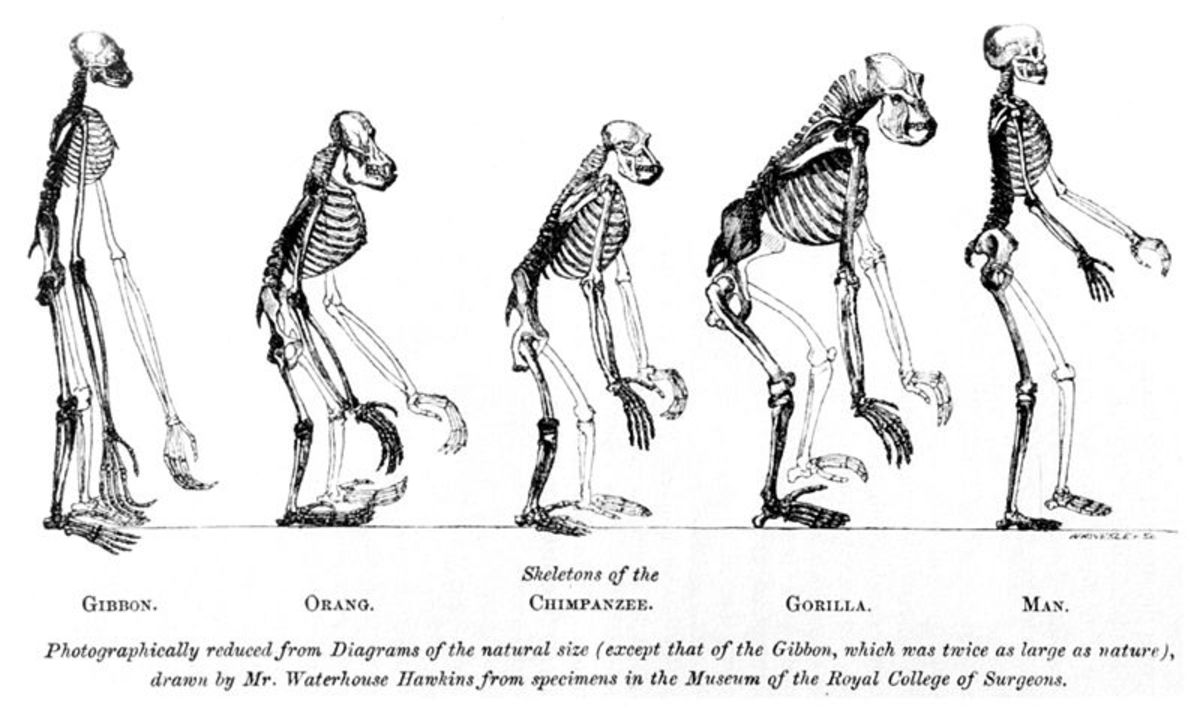The Amazing Evolving Human Brain
Human Head Cross-Section Showing Brain

Brain Usage - Past and Present
Brain size and usage ~ a fascinating subject.
The human brain, that is.
I have often heard it said that we each only use a small percentage of our brain. This set me thinking; nothing seems to evolve that we don't, or didn't, need. So, if we don't use much of our brains, now, then we must have used more, before.
When, in our developing past, could we humans have needed to use our brains more than we do now?
I didn't know much about brain anatomy or history, so I decided to look into this.
Do we really use only 10% ~ or even less ~ of our brains?
Or is this a myth?
*
Apparently it is a myth!!!
We each use our entire brain, but not all of it may be fully active all of the time, of course.
I found this information here:
~ 'The Ten Percent Myth' by Benjamin Radford
http://www.snopes.com/science/stats/10percent.asp
~ 'How Much of the Brain Do We Really Use?' ~ By Robert H. Shmerling, M.D.
http://www.intelihealth.com/IH/ihtIH/E/35320/35323/536360.html?d=dmtHMSContent
*
Benjamin Radford, who, I read, has a degree in Psychology, is managing editor of the science magazine: "Skeptical Inquirer".

My Hubs on Evolution and Creationism
Ten Percent?
'The Ten Percent Myth' by Benjamin Radford
And
'How Much of the Brain Do We Really Use?' by Robert H. Shmerling, M.D.
The latter item recounts a story, which tells how we can live with only a portion of our brains, and which might explain why people have believed that we, therefore, don't use our entire brain:
In the year 1848, a young Vermont man lost part of his brain's frontal lobe when 'an accidental explosion propelled a 3½-foot metal rod through Phineas Gage's head' . He seemed reasonably well immediately after the accident and made a good recovery. Or did he? ~ His personality changed, he 'developed seizures, and died 12 years after the accident'.
So, just because we can survive a brain injury, does not mean that we do not fully use our brains.

Homo Erectus / Ergaster
As far as I can gather, the 10% story seems to be some kind of ‘new age’ myth, based upon incorrect early teaching.(I would be interested to learn more, if anyone has evidence of its truth.)
The item in question also says: '... as language and complex reasoning skills evolved in humans over time, brain size increased dramatically' .
This makes sense.
But then I found a BBC article which set me wondering again:
'Human ancestors born big brained' ~ 14 November 2008
'A new Homo erectus fossil suggests that females had large, wide pelvises in order to deliver large-brained babies.'
'Having a larger brain size meant the young hominid was dependent on its mother for less time than a modern human baby, a useful survival adaptation in the African savannah where they lived.'
'The researchers say the erectus brain probably grew quickly before birth; but after birth, growth-rate then slowed ...'
http://news.bbc.co.uk/1/hi/sci/tech/7721999.stm

The 10% Myth
In the book '50 Great Myths of Popular Psychology: Shattering Widespread Misconceptions About Human Nature' the authors examine 50 of the most popular myths concerning psychology.
Here is one myth, as described on Amazon:
Quote:
Myth # 1: Most people use only 10% of their brain power
'There are several reasons to doubt that 90% of our brains lie silent.
At a mere 2-3% of our body weight, our brain consumes over 20% of the
oxygen we breathe. It’s implausible that evolution would have permitted
the squandering of resources on a scale necessary to build and maintain
such a massively underutilized organ. Moreover, losing far less than
90% of the brain to accident or disease almost always has catastrophic
consequences'
(Kolb & Whishaw, 2003).
*
'How did the 10% myth get started? One clue leads back about a century to psychologist William James, who once wrote that he doubted that average persons achieve more than about 10% of their intellectual potential. Although James talked in terms of underdeveloped potential, a slew of positive thinking gurus transformed “10% of our capacity” into “10% of our brain”.'
(Beyerstein, 1999).

We do use our large brains
So it seems that we do use our large brains ~ pretty much in their entirety,
and, though homo erectus babies may have been born with larger brains than our
babies are born with, today, that was only to allow them to become more independent,
earlier. The brains did not remain relatively larger.
For a bit more info, here's the Wikipedia page on the 'Human Brain':
http://en.wikipedia.org/wiki/Human_brain
I am no scientist, but I have no doubt that I shall be looking into this complex, but very interesting, subject a lot more in the future. And I haven't even started to consider, here, the relationship between brain and mind!









